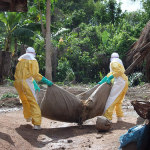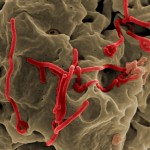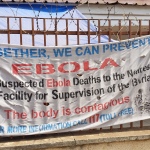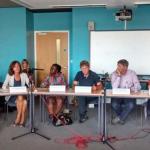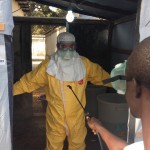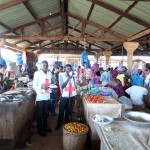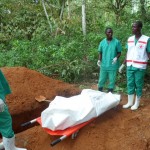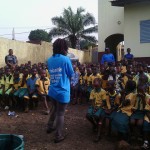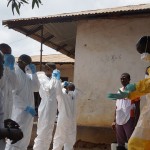The four villages in this report are found on the edge of the Gola Rainforest National Park, Sierra Leone and have been studied by members of the present team at intervals since 1987. The aim of this long-term study was to understand social composition and social change in forest-edge communities, and how these communities were adapting to conservation rules and opportunities. These villages have now been restudied as part of the SMAC community mobilization program for prevention of Ebola Virus Disease. This study, which was
Continue reading →
This study aimed to support Oxfam’s Public Health Promotion (PHP) strategy through a rapid qualitative assessment of the remaining social barriers to compliance with Ebola prevention and treatment messages. At the time of the study, most Liberians had a high awareness of Ebola prevention and treatment information. However, new infections continued to occur in “hot spots” around the country. A preliminary assessment suggested that negative perceptions and fear of Ebola response efforts contributed to non-compliance and resistance in some areas. Research activities assessed the sources
Continue reading →
Sociocultural, economic, and political dimensions play a defining part in epidemics and pandemics. Anthropological involvement is increasingly recognised as important, however, integration of social sciences during global health crises remains, for the most part, delayed, inconsistent, and distant from the centre of decision making and resource prioritisation. This problem is representative of much larger systemic barriers to academic and practitioner coordination in global health, humanitarian aid, and development practice. While anthropological insights on-the-ground can and do inform extraordinary containment and education efforts during medical humanitarian emergencies, they are
Continue reading →
The “selflessness of aid workers and medical volunteers” was praised both by the Queen in her Christmas message and by TIME magazine, who named ‘The Ebola Fighter’s their person of the year 2014. This emphasis on international staff, particularly doctors and nurses, gives a misleading impression about who is doing what in West Africa, and overlooks the huge contribution that national staff are making in their fight against ebola. Even when national staff are recognised, the focus again tends to be on the doctors and nurses, with some attention
Continue reading →
This report provides further output from an anthropological study of 25 villages affected by Ebola Virus Disease in eastern and central Sierra Leone, undertaken as part of the DFID-funded social mobilization initiative for Ebola prevention in Sierra Leone. Eight focus group transcripts for 3 villages in Kenema District are presented, covering local responses to health issues, and Ebola in particular. Supporting material from a matching questionnaire-based study of health behavior and perceived causes of Ebola is also provided. Of particular relevance are two summary tables
Continue reading →
In a recent interesting contribution to this platform, Paul Richards rightly questioned the mainstream perception that funerals per se are source of contamination in countries affected by ebola. The author argues that funerals are phenomena which are extremely interrelated to other different aspects of social life, like the overall care of sickness, the concept of authority, and the logic of parenthood. Yet, his brief paper has another value: by stressing the complexity of this social phenomenon, it tunes down the journalistic emphasis that in past
Continue reading →
This working paper reports on a study to identify the pace of Ebola-related social learning in urban and peri-urban areas around Monrovia, Liberia during August 2014, at the onset of the emergency phase of the epidemic. The research demonstrates how under conditions of accelerating health crises, social learning is rapid even in a context of heightened instability, suspicion, and misinformation. Misleading information in the form of local rumours and unhelpful government and international healthcare messages complicate this process and can produce anxiety. However, contrary to
Continue reading →
This working paper reports on a study to collect data on co-morbidity and co-mortality among urban Liberian populations during the Ebola epidemic from September to October 2014. Particular attention is paid to how local communities defined their symptoms and sicknesses, the patterns of healthcare-seeking that they pursued in a context of highly restricted health care access, the types of treatment regimens that they deployed to support home based care within their communities, and their perceptions of the causes of disease.
